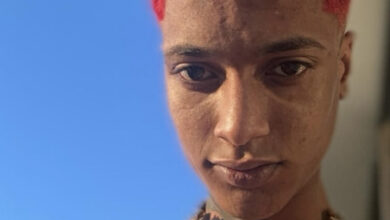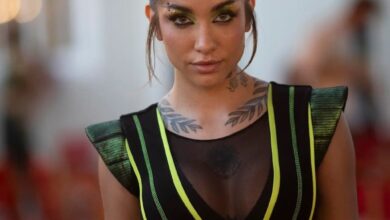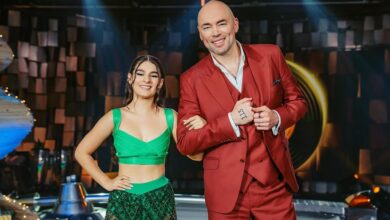AI’s New Beat Goes Viral with Song that Mimics Bad Bunny’s Voice
A viral sensation mimicking Bad Bunny's voice has sparked debate, showcasing AI's influence in music and raising legal and ethical questions about artistic ownership. Bad Bunny expressed his disapproval of the AI-generated song.

Photo: Edit-Latampost
Latin American Post Staff and EFE
Escucha este artículo
Leer en español: El nuevo ritmo de IA se vuelve viral con una canción que imita la voz de Bad Bunny
Unveiling an AI-Generated Musical Wave
Last month, the digital music scene was abuzz with a peculiar trend: a song that sounded strikingly similar to the voice of Puerto Rican rapper and singer Bad Bunny. However, it was different from the work of the famous artist. The voice captivating listeners belonged to an AI-generated creation, a blend of technology and creativity that has sparked both admiration and controversy.
The architect of this viral phenomenon is Chilean artist Maurico Bustos, known as FlowGPT. He employed advanced artificial intelligence techniques to replicate Bad Bunny's vocal style, resulting in the track "NostalgIA" – a clever play on words merging 'nostalgia' with the acronym 'AI.' This track wasn't just a one-off experiment; it became a sensation, leading to numerous parodies and copycats on social media platforms like TikTok.
Bad Bunny's Disapproval and FlowGPT's Response
Bad Bunny, who enjoys a massive following of 20 million on Instagram, expressed his disapproval of the AI-generated song. In a message to his fans, he clarified that those who enjoyed the viral track were not welcome on his tour, reflecting his displeasure at his voice being replicated without his involvement.
In an intriguing twist, Bustos responded to Bad Bunny by operating as the AI entity FlowGPT. He acknowledged his admiration for the rapper's work and credited his success to learning from various artists. FlowGPT's ambitious claim of striving to be the best artist in the world, even surpassing human capabilities, adds a thought-provoking dimension to the discourse on AI in the creative arts.
Bustos, 30, is familiar with this realm. He has previously released tracks under the FlowGPT moniker, inspired by artists like Colombian reggaeton sensation Feid and Puerto Rican rapper Anuel. His vision extends to creating a virtual character akin to the British band Gorillaz but with a twist – the character would be entirely AI-driven.
Navigating Legal and Ethical Waters
This incident has raised numerous questions about the legalities and ethics surrounding generative AI in the arts. According to Claudia Gutierrez, a consultant specializing in AI issues, the current legal framework must be equipped to handle such cases. She points out that while Bad Bunny might be upset about using his vocal tone, the lack of clear legal guidelines regarding AI-generated content leaves a grey area that artists like Bustos can navigate without fear of legal repercussions.
Also read: Paul McCartney's Unforgettable Night in Brazil's Capital
The situation encapsulates a larger conversation about the intersection of technology and art. As AI continues to evolve, it challenges traditional notions of creativity and ownership. The controversy surrounding FlowGPT's viral track is just a glimpse into a future where the lines between human and machine-made art become increasingly blurred. As artists and audiences grapple with these changes, the music industry finds itself at a crossroads where innovation meets ethics, and the future of artistic expression hangs in the balance.




